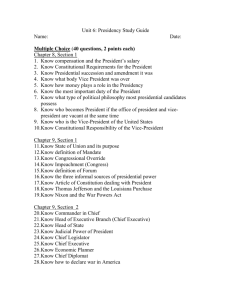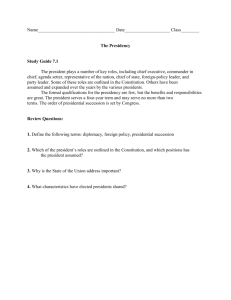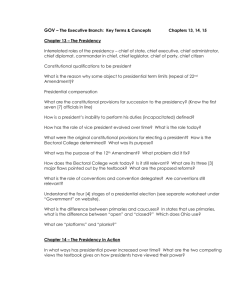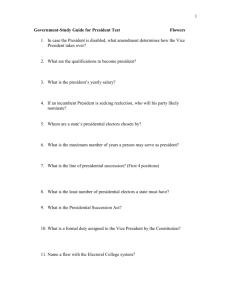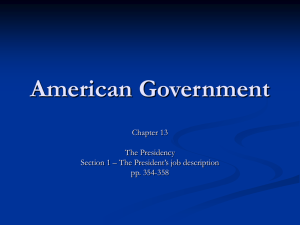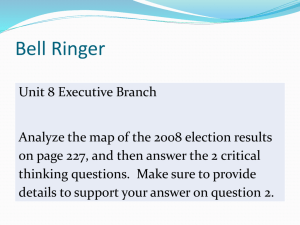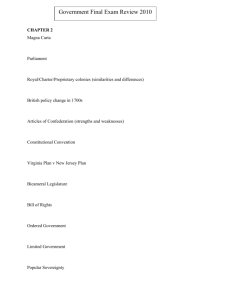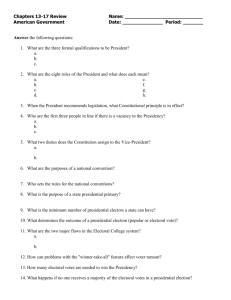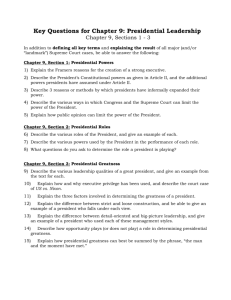Ch 13 & 14 Study Guide
advertisement
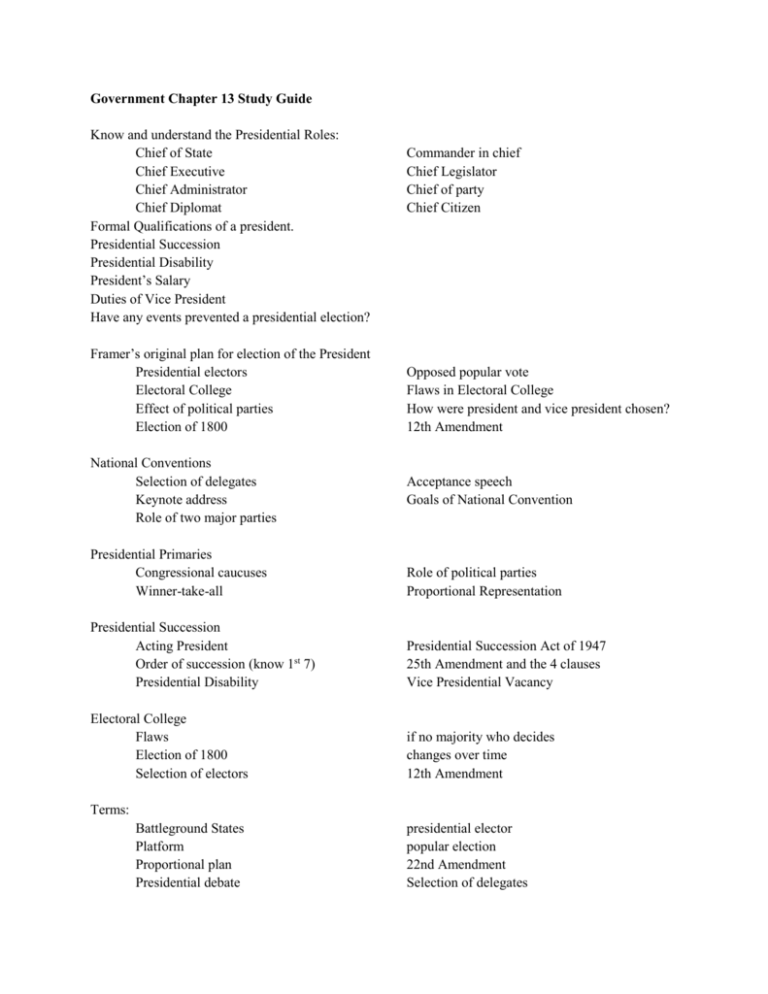
Government Chapter 13 Study Guide Know and understand the Presidential Roles: Chief of State Chief Executive Chief Administrator Chief Diplomat Formal Qualifications of a president. Presidential Succession Presidential Disability President’s Salary Duties of Vice President Have any events prevented a presidential election? Framer’s original plan for election of the President Presidential electors Electoral College Effect of political parties Election of 1800 National Conventions Selection of delegates Keynote address Role of two major parties Commander in chief Chief Legislator Chief of party Chief Citizen Opposed popular vote Flaws in Electoral College How were president and vice president chosen? 12th Amendment Acceptance speech Goals of National Convention Presidential Primaries Congressional caucuses Winner-take-all Role of political parties Proportional Representation Presidential Succession Acting President Order of succession (know 1st 7) Presidential Disability Presidential Succession Act of 1947 25th Amendment and the 4 clauses Vice Presidential Vacancy Electoral College Flaws Election of 1800 Selection of electors if no majority who decides changes over time 12th Amendment Terms: Battleground States Platform Proportional plan Presidential debate presidential elector popular election 22nd Amendment Selection of delegates Chapter 14 - The Presidency in Action - Test STUDY GUIDE Reprieve Pardon Commutation Executive Article Treaty What 3 factors have worked to strengthen the growth of the powers of the presidency? Who does the President share military powers with? When is the only time the President cannot exercise judicial power? What two measures give the President the power to issue executive orders? What has the debate over the powers of the Presidency been essentially about? What does the ordinance power give the President the right to do? Explain the difference between a treaty and an executive agreement? What are the different actions the President takes when he/she receives a bill? What does the term imperial presidency refer to? Explain what the ordinance power of the President is. When the president recognizes a nation, what is one action he would take to ensure recognition? What is the length of time threat a President can commit American forces to combat without the approval of Congress? Which type of bill did the president have the line-item veto for? What does the presidential power of commutation allow the president to do? Explain what the President has done, when he declares someone persona non grata. What type of cases do the President’s clemency powers apply only to? Explain what a pocket veto is. What was the purpose of the War Powers Resolution of 1973? If a President does not agree with a federal law, he or she can take what action? How have some President’s gotten around the Senate’s refusal to ratify a treaty?
